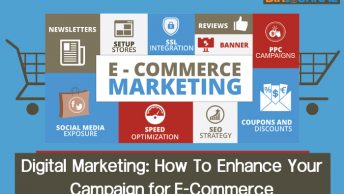Company blogs are long passed the early adopter stage of their lifecycle. But does that mean all (or even most) businesses should have a blog by now? Should your business have a blog?
Blogging has several benefits to businesses in a marketing and PR capacity, from direct sales conversions to visibility and exposure within your industry. However, it isn’t right for every business. To determine whether or not business blogging is right for you, you’ll need to evaluate those benefits along with some of the risks.

Benefits of Business Blogging

Business blogs can do a lot to help your business–to help you build an audience, grow your company, increase revenues, and more. Here are some of the specific benefits of launching a blog for your small business:
- You can offer company news directly to your customers, readers, subscribers, etc.
- You can provide customer support.
- You can receive customer feedback (free market research).
- You can network with colleagues, potential customers, and others in your niche or industry.
- You can sell products (or services).
- You can earn advertising revenue.
- You can build brand awareness.
- You can position yourself as an authority source of information.
Risks of Business Blogging
Business blogs can certainly do a lot of good for your business, but there are also risks. If you’re careless with a company blog, you can damage your professional reputation and even lose business. Here are some of the risk factors of business blogging:
-
- You can damage your company’s credibility if false or misleading information is published in haste.
- You can face legal consequences if posts are libelous or infringing on others’ rights (another risk from the ease of publishing without strict editorial control).

- You can turn customers against your brand if you don’t handle two-way communication effectively (such as deleting constructive criticism or becoming rude with customers through your comments).
- You can lose further credibility if you use a blog solely for SEO and not to actually educate, inform, entertain, or have conversations with your audience (publishing constant links with the same anchor text, posting keyword-stuffed garbage or content that’s practically illegible, etc.).
- You can hurt your overall productivity if executives spend too much time blogging and being engaged in other social media outlets while losing some focus on the larger objectives of the company (they can be a time drain).
How to Decide if Business Blogging is Right for You
For many companies, the benefits of a business blog outweigh the risks. Whether or not that applies to your company is up to you and your staff. One of the most important considerations before jumping into business or corporate blogging is whether or not you have anyone in the company capable of carrying it out.
Blogging isn’t a one-off project. It’s a commitment. More than that, it’s a responsibility. If you don’t have dedicated staff or contractors who can keep the blog updated regularly and be present to answer reader questions and respond to comments then your business probably isn’t quite ready for blogging yet. But if you do, kick off your business blogging the right way–through proper planning, just as you would any other aspect of your business. Every blog won’t offer every benefit. Decide what your blogging goals and motivations are, and work out a plan of attack before making that first post. That’s the best way to get the most out of blogging while minimizing the risks.








I found this on Sphinn and found it very informative. I’m currently writing an ebook on blogging for business, and I didn’t think to include potential downsides. But you’re right — there are many, especially when you don’t consider all that’s involved!
I found this on Sphinn and found it very informative. I’m currently writing an ebook on blogging for business, and I didn’t think to include potential downsides. But you’re right — there are many, especially when you don’t consider all that’s involved!
[…] Should Your Small Business Have a Blog? — 12:45pm via […]
Kelly – I think the problem is that when most people think of blogging, they turn to resources like ProBlogger. Darren’s a great resource, but the “you can make money, build a community, etc.” message highlights the potential upside for encouragement’s sake. When it comes to business blogging, I find it’s better to turn to resources on corporate blogging. It’s just another form of corporate communications, and you have to be able to control and monitor it to some degree. Without staff who can be devoted to that, a business blog can do more harm than good. Every business decision is a two-way street. A source you may want to look into is Debbie Weil – she literally wrote the book on corporate blogging.
Kelly – I think the problem is that when most people think of blogging, they turn to resources like ProBlogger. Darren’s a great resource, but the “you can make money, build a community, etc.” message highlights the potential upside for encouragement’s sake. When it comes to business blogging, I find it’s better to turn to resources on corporate blogging. It’s just another form of corporate communications, and you have to be able to control and monitor it to some degree. Without staff who can be devoted to that, a business blog can do more harm than good. Every business decision is a two-way street. A source you may want to look into is Debbie Weil – she literally wrote the book on corporate blogging.
[…] Small business and blogging […]
I have just started my blog but I never thought about the risk factors,thanks for the informative post I will take heed and publish wisely
I have just started my blog but I never thought about the risk factors,thanks for the informative post I will take heed and publish wisely
IMHO the pluses far outweigh the risks most of which are totally avoidable. Observing intellectual property rights and offering quality content pretty much takes care of the problems. And if you execs don’t know how to manage their time then you have bigger problems that whether to blog or not.
IMHO the pluses far outweigh the risks most of which are totally avoidable. Observing intellectual property rights and offering quality content pretty much takes care of the problems. And if you execs don’t know how to manage their time then you have bigger problems that whether to blog or not.
The risks are very real, and the bigger the company the bigger those risks are. Remember that blogs aren’t all about “quality content.” That would summarize the purpose of a niche blog, but company blogs are completely different animals. They’re about corporate communications, company news, etc. They’re generally subject to things like legal review or guidelines from the legal dept. (in the larger companies) where smaller niche blogs aren’t. They’ve caused PR disasters for companies in the past, and it’s in every business’ interest to have their PR people walk them through some of those case studies (like the Walmart exec ghostblogging fiasco quite a while ago) before they jump in. I agree that the pluses outweigh the risks for MOST businesses, but I don’t know a single reputable PR / SM consultant who would say blogging is right for all of them. And keep in mind, it’s not a matter of poor time management of execs. To seriously and properly manage a corporate blog takes a great deal of time, and that’s something most CEOs have very little of (if any at all). In some cases ghostbloggers or others in the company can step in, but it’s just not realistic for every business.
The risks are very real, and the bigger the company the bigger those risks are. Remember that blogs aren’t all about “quality content.” That would summarize the purpose of a niche blog, but company blogs are completely different animals. They’re about corporate communications, company news, etc. They’re generally subject to things like legal review or guidelines from the legal dept. (in the larger companies) where smaller niche blogs aren’t. They’ve caused PR disasters for companies in the past, and it’s in every business’ interest to have their PR people walk them through some of those case studies (like the Walmart exec ghostblogging fiasco quite a while ago) before they jump in. I agree that the pluses outweigh the risks for MOST businesses, but I don’t know a single reputable PR / SM consultant who would say blogging is right for all of them. And keep in mind, it’s not a matter of poor time management of execs. To seriously and properly manage a corporate blog takes a great deal of time, and that’s something most CEOs have very little of (if any at all). In some cases ghostbloggers or others in the company can step in, but it’s just not realistic for every business.
This is one great read. You have all the more established the importance of blogging for businesses. The insights are just ingenious. This is indeed something that everyone should read.
This is one great read. You have all the more established the importance of blogging for businesses. The insights are just ingenious. This is indeed something that everyone should read.
Setting up a blog for your small business might come with risks, but that’s not the only way a small business can gain a marketing advantage with the advent of Web 2.0. For example, making a video to put on YouTube and AdWido can be relatively simple but effective.
Setting up a blog for your small business might come with risks, but that’s not the only way a small business can gain a marketing advantage with the advent of Web 2.0. For example, making a video to put on YouTube and AdWido can be relatively simple but effective.
Blog is very beneficial to business. But one must understand the risks. Not all blogs are useful, other blogs might lead your company into destruction. It pays to be careful, so one must be able to learn blogging. The article is a big help to those small business and even the big ones in creating a blog.
Blog is very beneficial to business. But one must understand the risks. Not all blogs are useful, other blogs might lead your company into destruction. It pays to be careful, so one must be able to learn blogging. The article is a big help to those small business and even the big ones in creating a blog.
A blog is importnat in many aspects. Customer relations and communications. I do agree that you must be careful however as blogs can hurt you if not done properly.
A blog is importnat in many aspects. Customer relations and communications. I do agree that you must be careful however as blogs can hurt you if not done properly.
Small business
With Facebook and Twitter being among the leaders of the Social networks, marketing as a small business is being transformed..
Respondents according to the Vertical Response survey appear to need some differentiation with the use of SE marketing and Social media Marketing
http://www.onlineuniversalwork.com
Small business
1. Often we forget the little guy, the SMB, in our discussions of the comings and goings of the Internet marketing industry. Sure there are times like this when a report surfaces talking about their issues and concerns but, for the most part, we like to talk about big brands and how they do the Internet marketing thing well or not so well.
2. The Center for Media Research has released a study by Vertical Response that shows just where many of these ‘Main Street’ players are going with their online dollars. The big winners: e-mail and social media. With only 3.8% of small business folks NOT planning on using e-mail marketing and with social media carrying the perception of being free (which they so rudely discover it is far from free) this should make some in the banner and search crowd a little wary…….
http://www.onlineuniversalwork.com
Small business
1. Often we forget the little guy, the SMB, in our discussions of the comings and goings of the Internet marketing industry. Sure there are times like this when a report surfaces talking about their issues and concerns but, for the most part, we like to talk about big brands and how they do the Internet marketing thing well or not so well.
2. The Center for Media Research has released a study by Vertical Response that shows just where many of these ‘Main Street’ players are going with their online dollars. The big winners: e-mail and social media. With only 3.8% of small business folks NOT planning on using e-mail marketing and with social media carrying the perception of being free (which they so rudely discover it is far from free) this should make some in the banner and search crowd a little wary…….
http://www.onlineuniversalwork.com
Small business
Small Business owners are largely forgotten. Thats why I only focus on them. I have experience several members of my family file bankruptcy due to small business failures. I also I suffered through 2 destroyed businesses due to failure however, in my failings I have learned some of the secrets to success. (Who can say they know it all?
What I like about small business owners is that they are not afraid to take huge risks and lay it all on the line. But, I agree they do need a lot of help with their marketing. I think having them go the social media and email route is not only the least expensive but its also the most effective. Thanks for the stats!………
http://www.onlineuniversalwork.com
Thanks so much for the mention! It is interesting how many
people don't think of simply being kind as acting in our own
best interests – most of the time, we feel that acting with kindness is
giving others the upper hand, especially at work. But when I look back on
the most important relationships I have in my career, they're often based on
mutual respect and kindness.